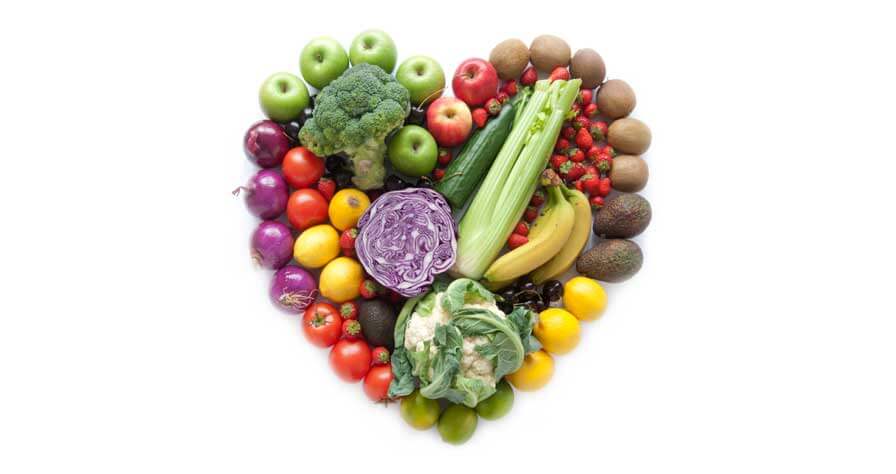Are High Fat Foods Good for Your Heart?

Your body requires fat in your diet to support a number of your body’s functions. That said, all fats aren’t equal. Some fats, like the unsaturated fats found in fish, nuts, and avocados, are healthy for your heart. Other types of dietary fat, like saturated fats found in red meat, are thought to play a role in cardiovascular disease. Fats are also higher in calories, so you need to balance your fat intake against the other foods you eat to avoid eating too many calories.
Types of Heart-Healthy Fat
There are many different types of fat. Your body makes its own fat from taking in excess calories. The fats found in the food we eat are called dietary fats. Dietary fat is a macronutrient that provides energy for your body. The three types of heart-healthy fats are monounsaturated, polyunsaturated, and omega-3 fatty acids. Foods made up of mostly polyunsaturated and monounsaturated fats include olive oil, corn oil, and peanut oil. Foods that contain omega-3 fatty acids include fish, such as salmon and sardines.
Monounsaturated Fatty Acids
This is found in a variety of foods and oils. Studies show that eating foods rich in monounsaturated fatty acids instead of saturated fats can improve your cholesterol level and may also reduce your risk for type 2 diabetes.
Polyunsaturated Fatty Acids
This type of fat is found mostly in plant-based foods and oils. Eating foods rich in polyunsaturated fatty acids can improve your cholesterol level and may also reduce your risk for type 2 diabetes.
Never miss a beat! Subscribe to our email newsletter to stay up-to-date on the most important health and wellness information, delivered right to your inbox.
Omega-3 Fatty Acids
Omega-3, which is found in some types of fatty fish, appears to reduce the risk of coronary artery disease. There are some plant-based sources of omega-3 fatty acids, but it’s not yet known if they have the same health benefits as omega-3 fatty acids from fish.
The two main types of fats that can be harmful to heart health are saturated fat and trans fat. Foods that have saturated fat include red meat and full-fat dairy products. Foods that contain trans fat include fried foods, like french fries, and baked goods, like cookies and cakes.
Saturated Fat
Saturated fat comes mainly from animal sources of food, such as red meat, poultry, and full-fat dairy products. Saturated fats raise high-density lipoprotein (HDL or “good”) cholesterol and low-density lipoprotein (LDL or “bad”) cholesterol levels, which can lead to cardiovascular disease.
Trans Fat
Most trans fats are from oils made through a food processing method called hydrogenation. These raise LDL cholesterol and triglyceride levels, but lower HDL cholesterol, which can lead to cardiovascular disease.
It’s a team effort: Our specialists come together to discuss and plan for every step, working closely with you, your family and other doctors you may be seeing during your period of care. Meet our team and find a provider.
Healthy Fats for Heart Health
Monounsaturated fats have been shown to improve blood cholesterol levels. These fats are found in the following foods:
- Olive oil
- Canola oil
- Peanut oil
- Non-hydrogenated margarine
- Avocados
- Some nuts (almonds, pistachios, cashews, pecans, and hazelnuts)
Polyunsaturated fats, such as omega-3, can help prevent blood clots, reducing the risk of stroke. They can also help lower triglycerides, which is a blood fat linked to heart disease. The best sources of omega-3 fat are:
- Cold-water fish (mackerel, sardines, herring, rainbow trout, and salmon)
- Canola and soybean oils
- Omega-3 eggs
- Flaxseed
- Walnuts
- Pecans
- Pine nuts
What’s the Most Heart-Healthy Oil?
Here, we’ll compare the differences between MCT oil, coconut oil, and olive oil. MCT oil is a supplement made from a type of fat called medium-chain triglycerides (MCTs). MCT oil is usually made from coconut or palm kernel oil.
Coconut oil contains MTCs, which can lead to weight loss because it leads to greater energy expenditure than long-chain triglycerides (LCTs). But because coconut oil is high in saturated fat, it’s generally not recommended for heart health. If you do choose to use coconut oil for weight loss, do so in moderation.
Fort heart health, the best oils are monounsaturated and polyunsaturated oils, primarily extra virgin olive oil.
Is the Keto Diet Bad for Heart Health?
The keto diet is a low-carb, high-fat diet rich in meats, eggs, nuts, and dairy. Fruits, root vegetables, grain products, and legumes are all prohibited. The intake of these types of food triggers the metabolic state of ketosis, a process that occurs when your body burns off fat as an alternate source of energy. Typically, that source of energy comes from your carbohydrate intake, which is converted to glucose and absorbed into the bloodstream. This diet can be very effective for weight loss, but what does it mean for your heart?
To date, there hasn’t been much research that directly examines the keto diet and any long-term cardiovascular effects. Most of the studies that have been done are smaller scale, and they’re filled with both positives and negatives. Some suggest it improves blood sugar in diabetics and lessens cardiovascular risk factors, like obesity. Others report spikes in “bad” cholesterol, heart problems, hypoglycemia.
Keto diets involve getting a significant portion of calories from fat, but not all fats are equal. Consuming a lot of saturated fats, like the ones in red meat and fast food can increase your risk for atherosclerosis, which can lead to coronary disease and heart attacks. Healthier fats – called monounsaturated and polyunsaturated fats – can be found in eggs, fish, and nuts.
Learn More About Heart Health at Baptist Health
The heart is one of the most important organs in your body. Evaluating the health of your heart is recommended to get a clearer picture of its overall health. Heart conditions, when gone untreated, are severely dangerous. Take our Heart Risk Assessment today to make sure your heart is healthy.
Next Steps and Useful Resources:
9 Signs of an Unhealthy Heart
The Effects of Stress on the Heart
5 Surprising Heart Attack Triggers – And How to Avoid Them



